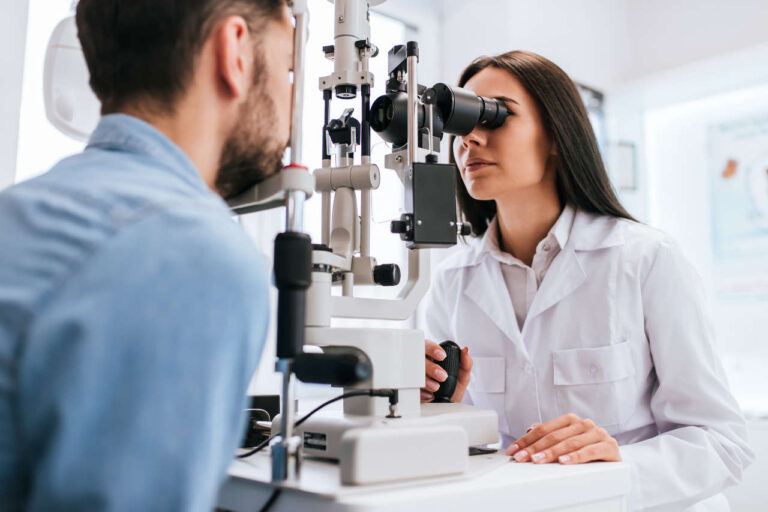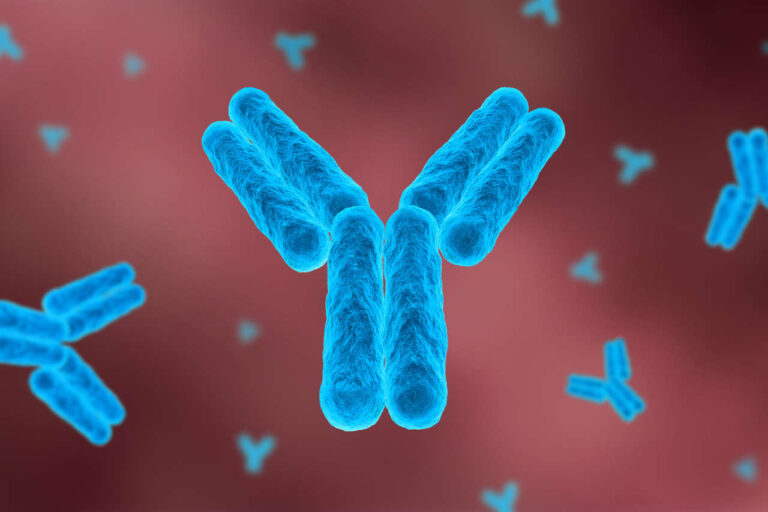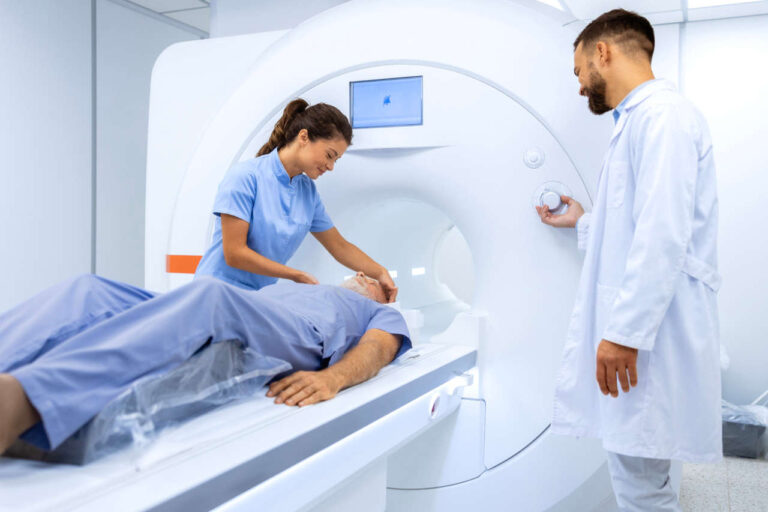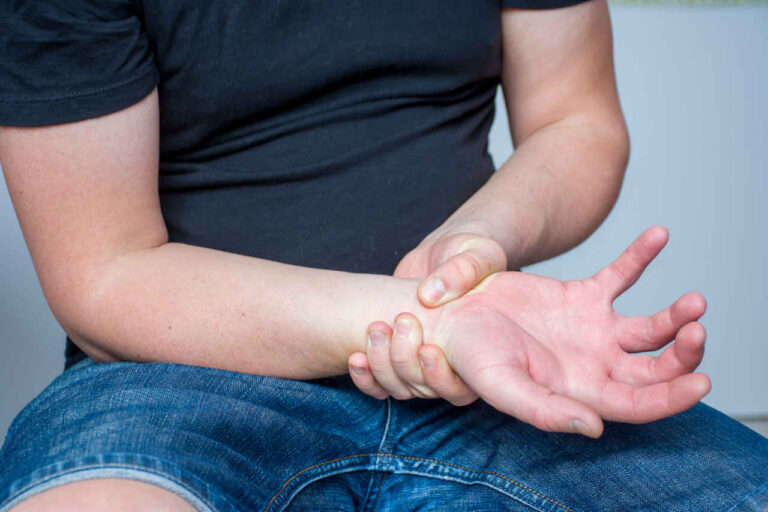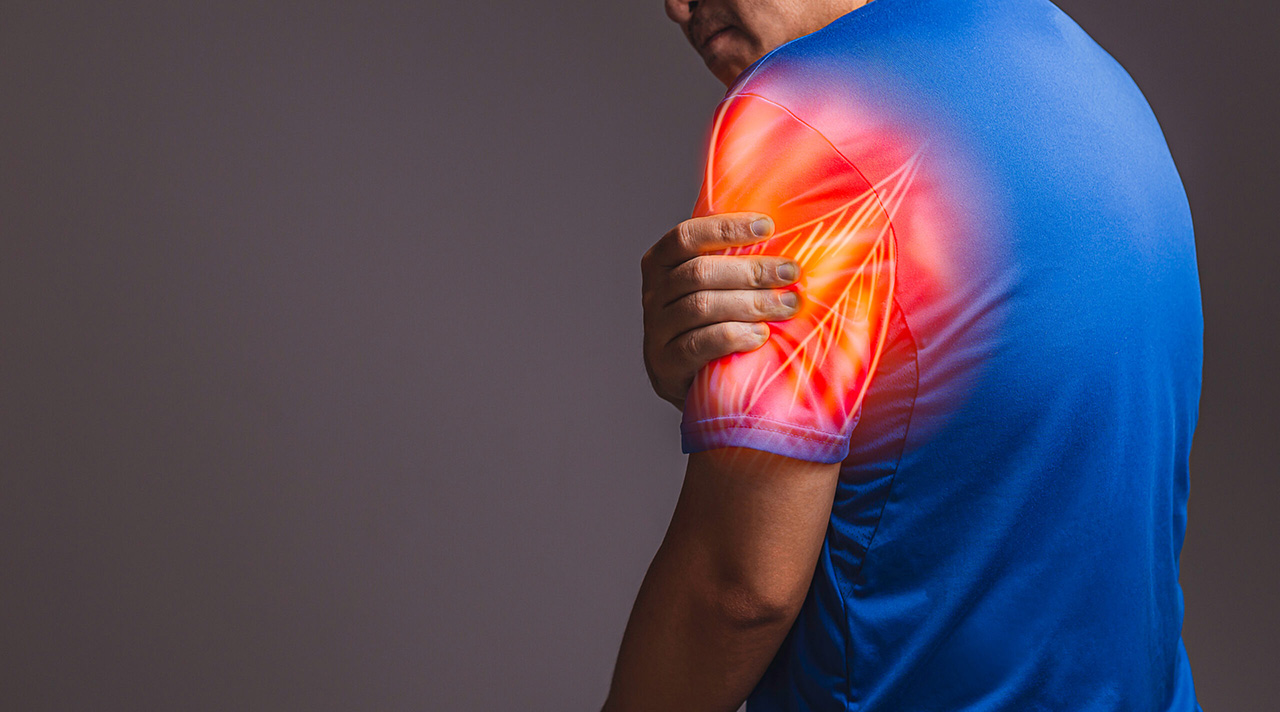
Polymyositis is a rare, chronic type of muscle disease known as inflammatory myopathy. Polymyositis belongs to a category of myositis, which includes polymyositis and dermatomyositis, and it causes muscles to be irritated and inflamed.
Polymyositis most commonly affects adults in their 30s to 50s and is more common in women than men. It is characterized by muscle weakness and inflammation. Polymyositis generally affects muscles closer to the trunk but can gradually develop and affect other muscles with time, making simple body movements difficult.
What Is the Cause of Polymyositis?
The exact cause of Polymyositis is still unknown, but hereditary factors are believed to play an important role in the development of this disease. Evidence also shows that the disease has many characteristics similar to autoimmune disorders, in which the body’s immune system attacks its own muscles and damages tissues.
Get IVIG Copay Assistance
IVIG Financial AssistanceWhat Are the Risk Factors of Polymyositis?
Risk factors related to Polymyositis are:
- Autoimmune conditions like rheumatoid arthritis, Sjogren’s syndrome, systemic lupus erythematosus, and scleroderma
- HIV and AIDS
- Breathing disorders
What Are the Signs and Symptoms of Polymyositis?
The most common symptom of polymyositis is muscle weakness due to inflammation. This may develop over a few weeks or months, and muscle tissues on both sides of the body are affected equally. Polymyositis tends to target muscles closer to the trunk of the body, such as shoulders, upper arms, neck, upper back, thighs, and hips. A person with this medical condition may have difficulty lifting objects, walking upstairs, lifting arms overhead, or rising from a chair. In severe cases of polymyositis, a person may face difficulty swallowing food if the esophageal and pharyngeal muscle tissues are affected, but this is unusual. Weakness of shoulder girdle and pelvic muscles may cause a person to be wheelchair or bed-bound. Other symptoms include:
- Muscle pain and stiffness
- Fatigue
- Fever
- Joint stiffness and pain
- Weight loss
- Raynaud’s phenomenon, a condition in which fingers or toes become very cold and discolored due to poor blood flow
Diagnosis
If your doctor suspects polymyositis, one or more of the following tests may be recommended:
- Blood tests: Blood tests will show if the body’s muscle enzyme levels are elevated, indicating muscle damage. A blood test can also detect the presence of autoantibodies associated with different symptoms of polymyositis. This can help determine the best medication and treatment.
- Electromyography: Electromyography (EMG) is done to check for electrical abnormalities in the affected muscle. It is done by inserting a thin needle electrode through the skin and into the affected muscle. Electrical activity is then measured during muscle relaxation or tightening, and the change in the pattern of electrical activity can confirm polymyositis. The distribution of disease in the body can be measured by testing muscles in various parts of your body.
- MRI: Magnetic resonance imaging (MRI) provides cross-sectional images of muscles to evaluate muscle inflammation associated with polymyositis. It is done to assess muscle inflammation over a large area.
- Muscle biopsy: A small sample of muscle tissue is surgically removed from the body for laboratory analysis to check for abnormalities, such as damage, inflammation, and deficiency of certain enzymes and proteins.
Treatment Info
Get IVIG Prior AuthorizationCan You Be Cured of Polymyositis?
Although there is no known cure for polymyositis, treatment for the conditions associated with polymyositis can improve muscle strength and function. The earlier treatment is started, the more effective it is in preventing the worsening of symptoms and reducing complications.
As with any health condition, no single treatment approach is considered best for all cases. The doctor will recommend treatment and medication strategies based on your symptoms and how well your body responds to them.
Medication
Polymyositis is a chronic condition, but there are ways to help manage it. The most common medications used for treating polymyositis include:
- Corticosteroids: Medications such as prednisone can effectively control the symptoms of polymyositis. However, prolonged use of these drugs can cause some severe side effects. Therefore, your doctor may gradually reduce the dose to lower but still effective levels.
- Corticosteroid-sparing agents: These are generally combined with corticosteroids to reduce the corticosteroids dosage and potential side effects. The most commonly used medications for polymyositis are methotrexate and azathioprine. Other medications include tacrolimus, cyclosporine, and mycophenolate mofetil.
- Rituximab: Although more commonly used as a treatment for rheumatoid arthritis, this medication can be used when initial therapies are not adequate in controlling the symptoms of polymyositis.
Intravenous Immunoglobulin (IVIG) Therapy
Polymyositis is considered an autoimmune condition treated with the above medications. However, many patients who respond to such treatments initially develop resistance to these therapies, or these medications can cause severe side effects when used for a prolonged period.
For such patients, Intravenous Immunoglobulin (IVIG) therapy may be considered. Research has shown that IVIG has been successfully used for the treatment of polymyositis. IVIG is used for reducing or controlling the effects of inflammation in autoimmune diseases by increasing the body’s immunoglobulin levels.
Immunoglobulin is derived from human blood plasma, which contains antibodies to suppress the harmful antibodies of polymyositis. IVIG is injected intravenously (through a vein in the arm). and the dose is based on the patient’s weight.
The standard dose of 2gm/kg is divided over two to five consecutive daily doses per month. The course of IVIG treatment is usually 3 to 6 months, and dosage is tapered depending on the patient’s response to the treatment.
Get IVIG Copay Assistance
IVIG Financial AssistanceWhat Are the Complications of Polymyositis?
If polymyositis is left untreated, it can result in severe complications. Possible complications include:
- Difficulty swallowing: When esophagus and pharyngeal muscles are affected, a person may have trouble swallowing, which can lead to malnutrition and weight loss.
- Aspiration pneumonia: When a person has difficulty swallowing, it becomes more likely to breathe food or liquid into the lungs, which can then cause pneumonia.
- Breathing problems: When chest muscles are affected, a person may experience shortness of breath or respiratory system failure.
Prognosis
The long-term outlook for Polymyositis patients depends on the severity of the condition. Most patients respond to treatment and gain some muscle strength back. In some cases, weakness may remain, and symptoms may recur. Even if a patient has entirely recovered from polymyositis, they are still at risk of recurrence.
Polymyositis is rarely a life-threatening condition. However, if a patient doesn’t respond well to treatment, it may cause disability. Polymyositis may also increase the risk of osteoporosis or cancer.
What Is the Life Expectancy of Patients With Polymyositis?
While no known cure is available for the condition, it is possible to control muscle damage with early treatment of polymyositis. According to the Merck Manual, the 5-year survival rate for adults with polymyositis is 75%. Death in patients with Polymyositis may result from consequences of severe and progressive muscle weakness, undernutrition, dysphagia, aspiration pneumonia, or respiratory failure with superimposed pulmonary infection.
Consult an IVIG Specialist
The Best IVIG Home Infusion | Get IVIG Treatment AssistanceConclusion
Polymyositis is a rare, chronic muscle disease characterized by inflammation and weakening muscles. When left untreated, the inflammation and weakness may spread to other parts of the body. If you are experiencing symptoms of polymyositis, consult your doctor as soon as possible to prevent the disease from developing into a severe medical condition.
While no known cure is available for polymyositis, treatment can help improve muscle strength. Early diagnosis and treatment can be effective in eliminating symptoms and preventing any complications.

